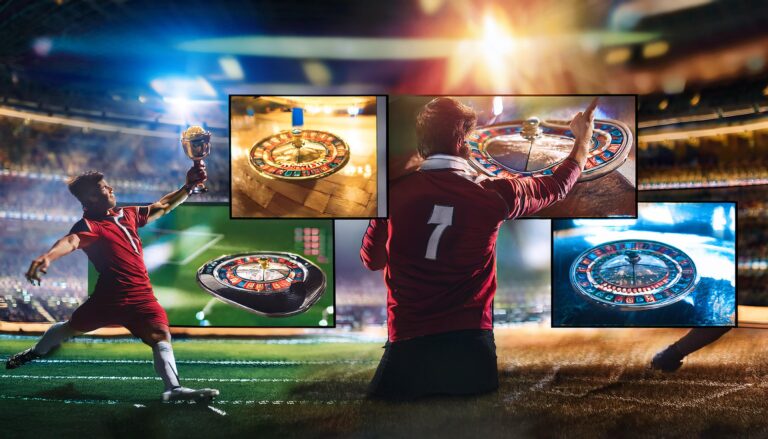The Psychology of In-Play Betting: Understanding the Rush
AllpaanelAllpaanel: In-play betting is a form of gambling that offers instant decisions and outcomesadding an adrenaline rush to the overall betting experience. The fast-paced nature of in-play betting creates a sense of excitement and urgency for the bettorleading to an increased engagement with the activity. This heightened level of engagement can be attributed to the psychological factor of arousalwhere the thrill of making quick decisions and seeing immediate results taps into the natural human desire for excitement and novelty.
Furthermorein-play betting allows individuals to feel a sense of control over the outcome of their betsas they can make quick decisions based on real-time information and analysis. This perception of control plays into the psychological principle of agencywhere individuals are more likely to engage in activities that make them feel empowered and in charge of their fate. The combination of arousal and agency in in-play betting creates a potent psychological cocktail that can lead to heightened levels of engagement and participation in this form of gambling.
The Role of Dopamine in In-Play Betting
Dopamineoften known as the “feel-good” neurotransmitterplays a crucial role in the realm of in-play betting. When a bettor places a wager during a live sports event and experiences a winthe brain releases dopamineleading to feelings of pleasure and satisfaction. This chemical reaction reinforces the behavior of in-play bettingcreating a cycle of seeking the thrill of placing bets during ongoing matches.
Moreoverthe anticipation of a potential win during in-play betting triggers the release of dopamine even before the outcome is known. This anticipation can drive bettors to engage in more frequent and impulsive betting behavioras they chase the euphoric high associated with dopamine release. The interplay between dopamine and in-play betting showcases how our brain’s reward system influences our decision-making processes in the context of live sports wagering.
Impact of Instant Gratification on In-Play Betting
Instant gratification plays a significant role in shaping the behavior of individuals engaged in in-play betting. The quick and immediate rewards that come from placing bets and making quick decisions during a live event can trigger a dopamine release in the brainreinforcing the behavior and making it more likely for individuals to continue participating in in-play betting activities. This craving for instant rewards can override rational thinking and lead to impulsive decision-makingas individuals seek the thrill of immediate satisfaction without considering the potential long-term consequences.
The fast-paced nature of in-play betting further amplifies the impact of instant gratificationas individuals are constantly seeking the next quick win or rush of excitement. The availability of instant results and immediate feedback on their bets provides a continuous stream of rewardsfeeding into the desire for instant gratification. This cycle of quick rewards can create a sense of euphoria and excitement that keeps individuals engaged in in-play bettingmaking it difficult for them to resist the temptations of instant gratification and the thrill of immediate outcomes.
What are some psychological factors that drive in-play betting?
Some psychological factors that drive in-play betting include the thrill of the gamethe desire for immediate rewardsand the adrenaline rush of making quick decisions.
How does dopamine play a role in in-play betting?
Dopamine is a neurotransmitter that is released in the brain when we experience pleasure or reward. In in-play bettingthe anticipation of winning a bet can trigger the release of dopamineleading to feelings of excitement and satisfaction.
How does instant gratification impact in-play betting?
Instant gratification plays a significant role in in-play betting as it provides immediate rewards and reinforces the behavior of placing bets in real-time. This can lead to impulsive decision-making and addictive behavior in some individuals.
Is in-play betting addictive?
In-play betting can be addictive for some individualsespecially those who are susceptible to impulsive behavior or have a tendency towards gambling addiction. The quick pace of in-play betting and the instant gratification it offers can make it particularly enticing for those seeking a thrill.
How can one avoid the negative impact of instant gratification in in-play betting?
To avoid the negative impact of instant gratification in in-play bettingit is important to set limits on how much time and money you are willing to spend on betting. Practicing self-controltaking breaksand seeking support from loved ones or a therapist can also help prevent addictive behavior.







